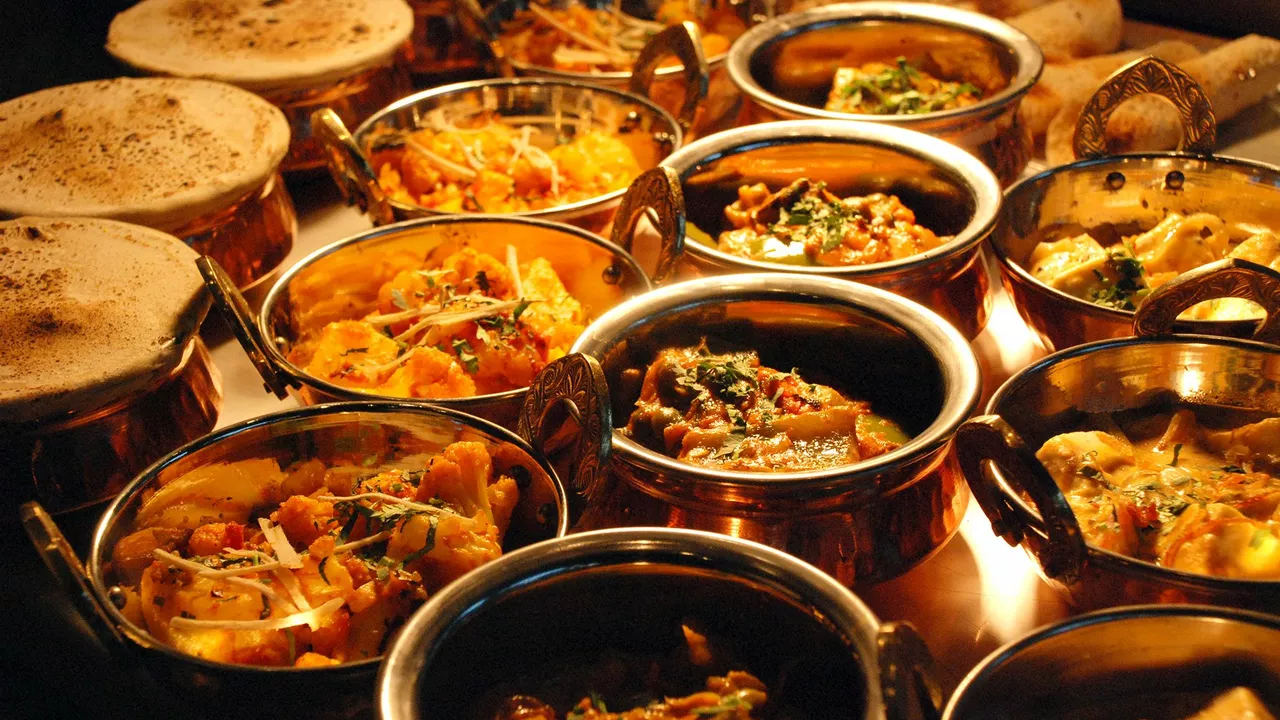The Intricate Blend of Spices
One of the primary reasons why Indian food is so delicious is due to the intricate blend of spices used in preparing each dish. It's not just about the heat; it's about the complex layering of flavors that make Indian food a culinary delight. Spices such as turmeric, cumin, coriander, and garam masala are staples in most Indian kitchens, each adding their unique flavor and aroma to the dishes. It's this symphony of spices that gives Indian food its distinctive taste.
A Multitude of Flavors
Indian cuisine is like a palette of flavors, where sweet, sour, spicy, and savory come together in harmony. Each dish is a balance of these flavors, creating a taste sensation that is unparalleled. Whether it's the tanginess in a chaat, the sweetness in a dessert, or the spiciness in a curry, every bite is an explosion of flavor. It's this juxtaposition of flavors that makes Indian food so addictive.
The Art of Slow Cooking
Indian food is steeped in tradition, and one such tradition is slow cooking. This method of cooking allows the spices to infuse into the dish, enhancing its flavor. It also helps in breaking down the ingredients, making them more digestible. The slow and steady cooking process not only enhances the taste but also preserves the nutritional value of the food, making it healthier.
The Use of Fresh Ingredients
Indian cuisine emphasizes the use of fresh ingredients. Whether it's fresh vegetables, herbs, or dairy products, the freshness of the ingredients contributes to the taste of the food. Indian cuisine also makes use of seasonal produce, ensuring that the food is at its peak in terms of flavor and nutrition. It's this commitment to freshness that makes Indian food so delightful.
The Diversity of Indian Cuisine
India is a diverse country, and this diversity is reflected in its cuisine. Each region in India has its unique culinary traditions and specialties. From the rich and creamy dishes of the north to the spicy and tangy dishes of the south, the variety in Indian cuisine is vast. This diversity means that there is something for everyone in Indian cuisine, making it universally appealing.
The Role of Fermentation
Fermentation plays a significant role in Indian cuisine. Many Indian dishes like idli, dosa, and dhokla are made using fermented batter. Fermentation not only enhances the flavor of the food but also increases its nutritional value. It also aids in digestion, making the food easier to digest. The use of fermentation in Indian cuisine adds another dimension to its taste profile.
The Importance of Presentation
In Indian cuisine, the presentation of the food is as important as its taste. Food is often served in a thali, a large platter with several small bowls, each containing a different dish. The sight of a thali, with its variety of colors and textures, is sure to whet your appetite. The attention to presentation in Indian cuisine adds to the overall dining experience, making the food even more enjoyable.
The Influence of Culture and Tradition
Indian food is deeply rooted in the country's culture and traditions. Many dishes are prepared during festivals and special occasions, each with its significance. The preparation of food is often a communal activity, bringing people together. This cultural and traditional influence gives Indian food its soul, making it so much more than just food.
The Health Benefits of Indian Food
Indian food is not just delicious; it's also healthy. Many of the spices used in Indian cooking have medicinal properties. For example, turmeric is known for its anti-inflammatory properties, while ginger aids digestion. Indian cuisine also includes a variety of lentils and pulses, which are rich in protein. The use of fresh ingredients further boosts the nutritional value of the food. It's this combination of taste and health that makes Indian food so appealing.
Why You Should Try Indian Food
If you haven't tried Indian food yet, you are missing out on a world of flavors. The complexity of the spices, the balance of flavors, the slow-cooking process, the freshness of the ingredients, the diversity of the cuisine, the role of fermentation, the presentation of the food, the influence of culture and tradition, and the health benefits of the food all come together to create a gastronomic experience that is Indian cuisine. So, go ahead and give it a try. Your taste buds will thank you.
